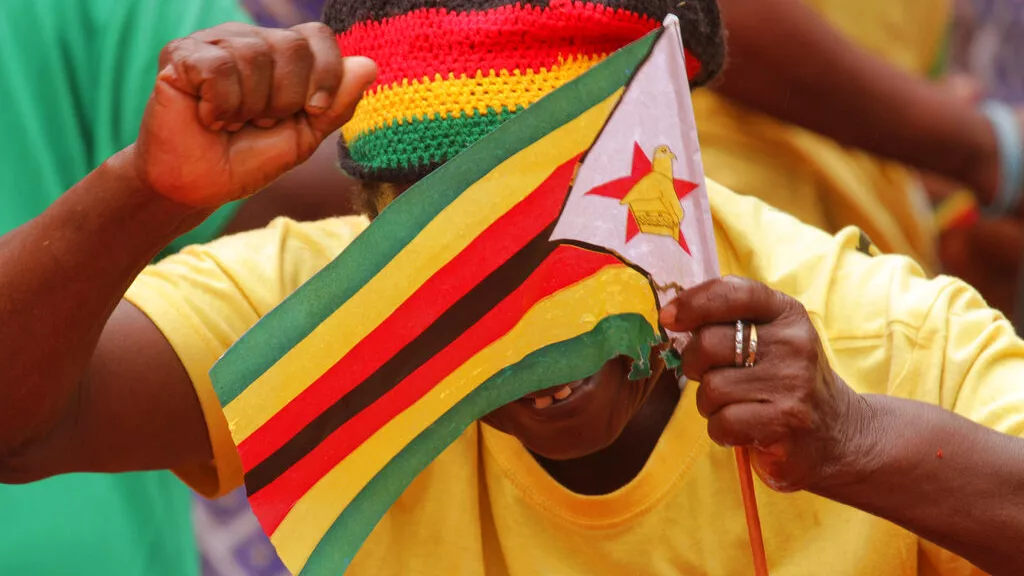Ten significant dates in Zimbabwe’s history since gaining independence in 1980 are listed below.
1980: independence
After 90 years of British colonization and a seven-year conflict between black nationalists and white supremacists that claimed more than 27,000 lives, Southern Rhodesia attained independence on April 18, 1980, and changed its name to Zimbabwe.
Robert Mugabe, the head of the Zimbabwe African National Union (ZANU) and one of the heroes of independence, served as prime minister from 1980 to 1987 and promoted a policy of amity with the white majority.
1983-84: Massacres in Matabeleland
Robert Mugabe, who wants to create a single party, cracks down violently on Joshua Nkomo’s supporters soon after he takes office in an effort to unify the country.
In the Matabeleland region (southwest), during this period of repression known as “Gukurahundi” (“separating the wheat from the chaff” in the dominant Shona language), some 20,000 civilians, mostly Ndebele speakers, were slain.
1987: Mugabe President
In 1987, the party of Robert Mugabe and that of Joshua Nkomo merged, forming the Zanu-Patriotic Front (ZANU-PF). Robert Mugabe becomes President after a constitutional reform .
1999: birth of the opposition
Trade unionist Morgan Tsvangirai founded the opposition Movement for Democratic Change (MDC) party in 1999.
He campaigned for the rejection, in a referendum the following year, of a draft new Constitution aimed at authorizing the expropriation of white farmers without compensation.
2000: land reform
In February 2000, despite the “no” victory in the referendum, Mugabe launched a violent occupation and then the expropriation of 90% of the farms belonging to white owners, to redistribute them to black Zimbabweans.
This policy causes the bankruptcy of agriculture and plunges the economy, strangled by sanctions from Western countries, into two decades of crisis.
2002: electoral violence
In March 2002, Robert Mugabe was re-elected in a disputed election marked by violence.
Five years later, opposition leader Morgan Tsvangirai was arrested before a banned rally against the regime, and beaten by the police while in detention.
Images showing him with his swollen face and partially shaved head, revealing a gash on his head, go around the world.
2009: unity government
In March 2008, when the devastated economy was compounded by vertiginous hyperinflation, the MDC (opposition) took control of Parliament.
Tsvangirai is ahead of Mugabe in the first round of the presidential election but gives up contesting the second in the face of repression. Alone in the running, Mugabe was re-elected in June.
Under pressure from the West and his neighbors in southern Africa, Mugabe accepts the formation of a government of national unity. Morgan Tsvangirai became Prime Minister in February 2009.
2017: Mnangagwa succeeds Mugabe
After 37 years in power, Mugabe was forced to resign in 2017 under pressure from the army. He will die two years later in Singapore.
The generals who took power nominate ex-vice president Emmerson Mnangagwa, nicknamed the “crocodile”, as their successor.
The following year, Mnangagwa narrowly won the elections (50.8% of the vote). The opposition contests the results, the army kills six people during demonstrations.
2019: demonstrations violently repressed
From October 2018, the country experienced several months of protests against the high cost of living, which turned into a riot in January 2019 after a sharp rise in fuel prices. At least 17 civilians are killed. The opposition accuses the new regime of surpassing Mugabe in brutality.
2022: launch of the CCC, opposition coalition
Following splits in the opposition, Nelson Chamisa, loser of the presidential election in 2018, launched a new party, the Citizens’ Coalition for Change (CCC), in January in view of the August elections.
His campaign was marked by strong repression by the power, considered more brutal than under Mugabe, between prohibited meetings and the imprisonment of opponents.


